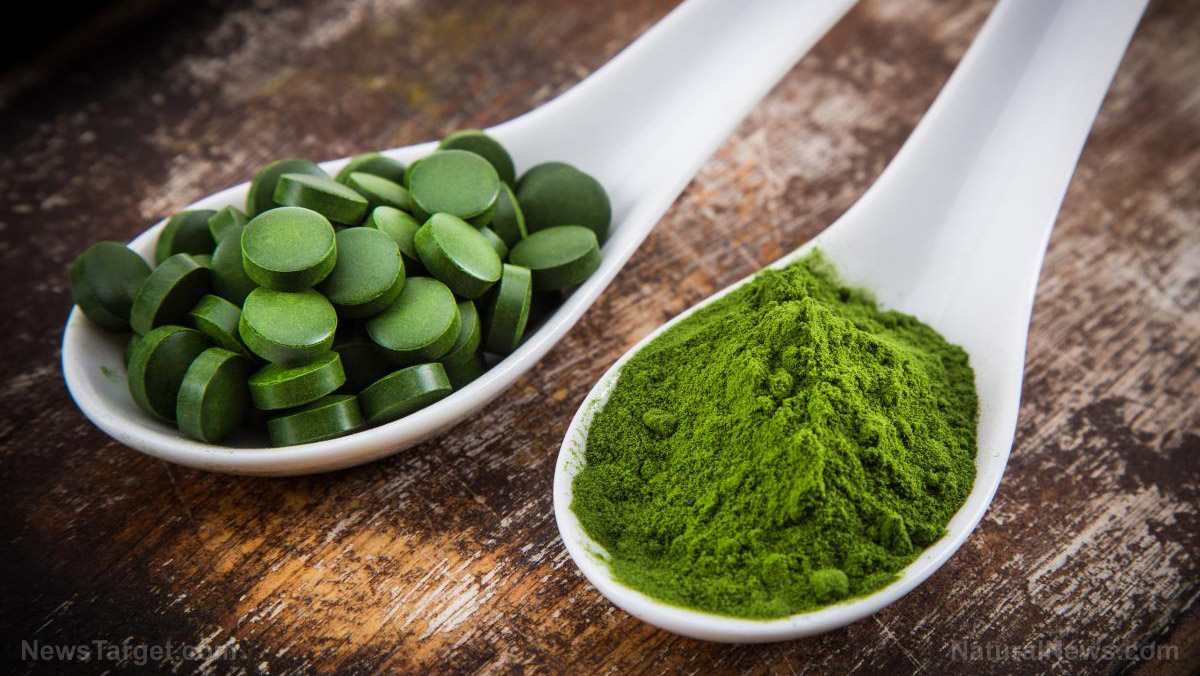Study suggests that a dietary boost can reshape the gut microbiome to enhance the body’s ability to fight disease
01/10/2019 / By Zoey Sky

The food you eat nourishes gut bacteria, and these bacteria then produce essential nutrients that fight off pathogens, guide immune responses, and keep you healthy. Now, according to a study by researchers from the Stanford University School of Medicine, it may be possible to manipulate gut bacteria and prevent disease.
In theory, learning how and why certain bacterial strains humans ingest can thrive in the large intestine while others are rejected may help scientists find out how to manipulate the makeup of thousands of bacterial species to boost overall health or help prevent diseases. However, gut ecology is complex, making this task seem impossible.
For the study, researchers tested laboratory mice to find out they can manipulate the mice’s diet to influence the engraftment of a particular bacterial strain.
Manipulating gut bacteria for better health
The team of researchers shared that they have discovered how to control how much a bacterium grows in the intestine by adjusting the amount of a specific carbohydrate in each mouse’s food or water.
Dr. Justin Sonnenburg, associate professor of microbiology and immunology, explained that everyone has a microbial community in their gut that formed in an uncontrolled manner during the first few years of life. As you grow older, you continue to acquire new strains.
However, this acquisition is “a poorly orchestrated and not-well-understood process.” Dr. Sonnenburg posited that the study results imply that it is possible to reshape the microbiome to boost health and fight off disease. (Related: Gut bacteria “signatures” predict how the body will respond to poor food choices, predicting risk for diabetes, heart disease.)
The growing field of probiotics, which involves beneficial live bacterial cultures naturally found in food like yogurt or supplements, illustrates the need for the public to be educated on the importance of gut bacteria. Not everyone takes probiotics or consumes yogurt, but everyone “unknowingly consumes low levels of gut-adapted microbes” throughout their life. Regardless of the source, experts still don’t know why one bacterial strain is more successful over another.
Dr. Sonnenburg et al. wanted to find out if a dietary boost could help certain bacterial strains survive in the human gut microbiome. The team started the study by visiting the San Jose Wastewater Treatment Facility to acquire members of the genus Bacteroides. This is the most prominent genus in the human gut microbiota.
The researchers searched for strains that can digest nori, an ingredient relatively rare in American diets. Nori is nutritious, and the seaweed is often used in sushi rolls and other Japanese foods. A separate study has determined that four grams of nori contain 2.4 micrograms (mcg), or 100 percent of the Reference Daily Intake (RDI) of vitamin B12.
Researchers screened the bacteria collected in the primary effluent to find a strain that can use porphyran, a carbohydrate found in nori. Dr. Sonnenburg said that in humans, the genes that allow a bacterium to digest porphyran are very rare in people who don’t usually consume seaweed. He added that this let the researchers test how they can bypass the rules of complex ecosystems.
To do so, the researchers created “a privileged niche that could favor a single microbe by allowing it to exist in the absence of competition from the 30 trillion other microbes in the gut.”
Bacteroides and nori
After the researchers identified a strain of Bacteroides that could consume nori, the team tried to introduce the seaweed into three groups of laboratory mice.
Two mice groups had their own gut bacteria eliminated and replaced with the naturally occurring gut bacteria taken from two healthy human donors. Both individuals donated exclusively to each mice group. The third group of mice retained a conventional mouse-specific community of gut microbiota.
The test results showed that when the mice were fed a typical diet, the strain that could digest porphyran engrafted in two groups of mice to varying and limited degrees. One mice group with human gut bacteria completely rejected the new strain. Meanwhile, the mice group that followed a diet enriched with porphyran-rich diet produced significantly different results: the bacteria steadily engrafted at similar levels in all the mice.
Dr. Sonnenburg also said that she was able to “precisely calibrate” the population size of the engrafted bacteria by changing the amount of nori that the animals consumed. She noted that the results of the dilution experiment were extraordinary and that it clearly showed the direct effect of diet on the bacterial population.
After the researchers confirmed that they could manipulate the engraftment and growth of the bacterial strain, they also managed to prove that the genes required for the digestion of porphyran exist as a unit. These genes could be engineered into other Bacteroides strains to give them the same engraftment advantage. The researchers are now trying to identify other genes that may give similar dietary abilities.
Dr. Sonnenburg stated that for the past decade, gut microbes had been proven to be connected to various aspects of human biology. Thanks to the study, the research team was also able to show that these bacteria are “very malleable.” The research team is hopeful that their discovery can be used to revolutionize how precision health is practiced.
The study was published in the journal Nature.
You can browse more articles about nori and other foods with various health benefits at Healing.news.
Sources include:
Tagged Under: disease prevention, gut bacteria, gut ecology, gut health, gut microbiome, natural cures, natural healing, natural remedies, nori, porphyran, prevention, probiotics, proper nutrition, Pyropia, remedies, research, seaweed



















